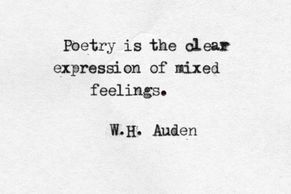How's that for a metaphor? Powerful. Speaking of metaphor, that's the topic of our next meeting of the Basic Poetics Study Group, to be presented bySheila Deane on May 13th, 2-4. Everyone welcome. Just email me, burfield@live.com
|
"Hast thou given the horse strength (by giving him sin)? Hast thou clothed his neck with thunder?" Job 39/19
How's that for a metaphor? Powerful. Speaking of metaphor, that's the topic of our next meeting of the Basic Poetics Study Group, to be presented bySheila Deane on May 13th, 2-4. Everyone welcome. Just email me, burfield@live.com
0 Comments
 Sat. April 8th, 2017: the launch of this series of get-togethers and learning sessions for London, Ont. poets who would like to learn more poetics, brush up on what they've forgotten, or just get to know some fellow poets. (Earlier we announced it as April 1st, but, sorry, the room wasn't available.) Group founder, Stan Burfield, will be the 1st episode teacher, discussing something he has forever been guessing at: line breaks. The general idea behind the group: 1. This group is be mainly for poets (and poetry lovers) with less formal education in poetry than they would like to have. For example, yours truly. 2. Because poetry is like chess in that a person can become endlessly more proficient at it (because of its ancient lineage and because bright people have been studying it and writing and teaching about it for nearly that whole time), there is a God-awful lot to learn. Thus the world of poets can be divided into two groups: those with a formal university education specializing to some degree in poetry, and those without one. 3. The group's professors will be the group members themselves. Those who would like to will pick a topic from the world of poetics, research it, and present it, discuss it, show examples of it in poems, and generally get the group thinking about how, why, and when to apply it, and what happens if it's not applied, and so on. In other words, by the end of each session, everyone should have a new tool at their disposal to help them enrich their poetry. (And to help them read others' poetry.) 4. Topics will include especially the aspects of poetics most commonly employed in contemporary poetry, but not limited to them. Some examples: the major aspects of poetry, including lines, syntax, diction, trope, rhetoric, rhythm, meter, stanza and then some of the zillion sub-categories like enjambment, stress, scansion, allusion, imagism, metaphor, free verse, feeling, metonymy, allusion, abstraction, how to read a poem, etc etc. Send me an email so I can put you on the invite list: burfield@live.com Thanks, Stan Burfield Sat. April 8th, 2017: the launch of this series of get-togethers and learning sessions for London, Ont. poets who would like to learn more poetics, brush up on what they've forgotten, or just get to know some fellow poets.
Group founder, Stan Burfield, will be the 1st episode teacher, discussing something he has forever been guessing at: line breaks. The general idea behind the group: 1. This group is be mainly for poets (and poetry lovers) with less formal education in poetry than they would like to have. For example, yours truly. 2. Because poetry is like chess in that a person can become endlessly more proficient at it (because of its ancient lineage and because bright people have been studying it and writing and teaching about it for nearly that whole time), there is a God-awful lot to learn. Thus the world of poets can be divided into two groups: those with a formal university education specializing to some degree in poetry, and those without one. 3. The group's professors will be the group members themselves. Those who would like to will pick a topic from the world of poetics, research it, and present it, discuss it, show examples of it in poems, and generally get the group thinking about how, why, and when to apply it, and what happens if it's not applied, and so on. In other words, by the end of each session, everyone should have a new tool at their disposal to help them enrich their poetry. (And to help them read others' poetry.) 4. Topics will include especially the aspects of poetics most commonly employed in contemporary poetry, but not limited to them. Some examples: the major aspects of poetry, including lines, syntax, diction, trope, rhetoric, rhythm, meter, stanza and then some of the zillion sub-categories like enjambment, stress, scansion, allusion, imagism, metaphor, free verse, feeling, metonymy, allusion, abstraction, how to read a poem, etc etc. Send me an email so I can put you on the invite list: burfield@live.com Thanks, Stan Burfield |
Archives
August 2017
Categories
All
|
 RSS Feed
RSS Feed